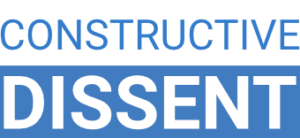Our right to information
As knowledge is collectively built and communally shared, learning is not passive but participatory and its most characteristic expression is in colloquy rather than deference. “What makes it possible for a totalitarian or any other dictatorship to rule is that people are not informed; how can you have an opinion if you are not informed? If everybody always lies to you, the consequence is not that you believe the lies, but rather that nobody believes anything any longer” (Hannah Arendt).
Critical Thinking Corner
Practical answers to critical fundamental to understanding and civic engagement
Letters and Templates
Tools for encouraging accountability in both our elected representatives and the appointees with delegated authority to oversee administrative domains within the public sphere.
Links to Research Sites
Access to resources labouring for the public good.
The Liberal Arts and Civic Engagement within Liberal Democracies
Liberal arts education generally covers four areas: the natural sciences, social sciences, arts, and humanities.
The four arts of astronomy, mathematics, geometry, and music were combined into one area of study to form the “disciplines of the mediaeval quadrivium“
Eventually rhetoric, grammar, and dialectic (logic) became the educational programme of the trivium. Together they came to be known as the seven liberal arts.[7]
Originally these subjects or skills were held by classical antiquity to be essential for a free person (liberalis, “worthy of a free person”)[8] to acquire in order to take an active part in civic life, something that included among other things participating in public debate, defending oneself in court, serving on juries, and participating in military service.
